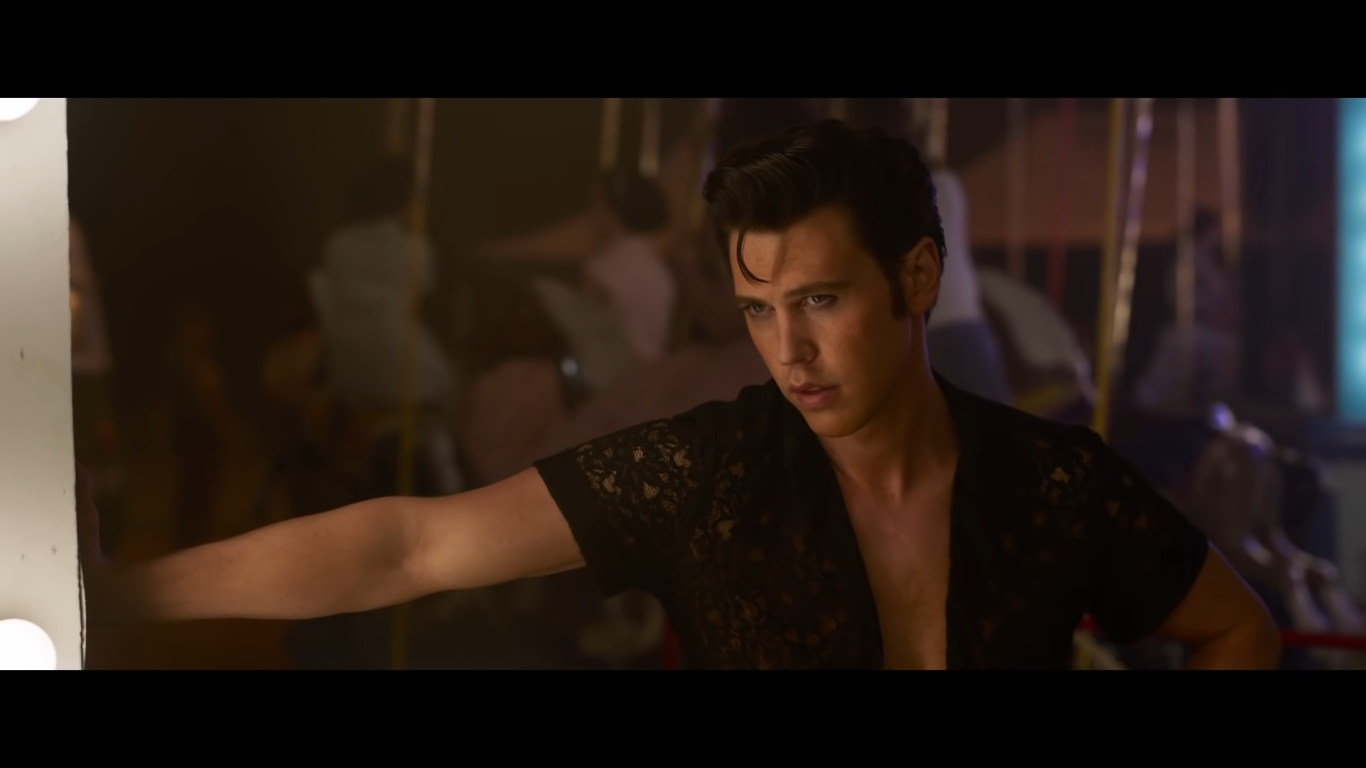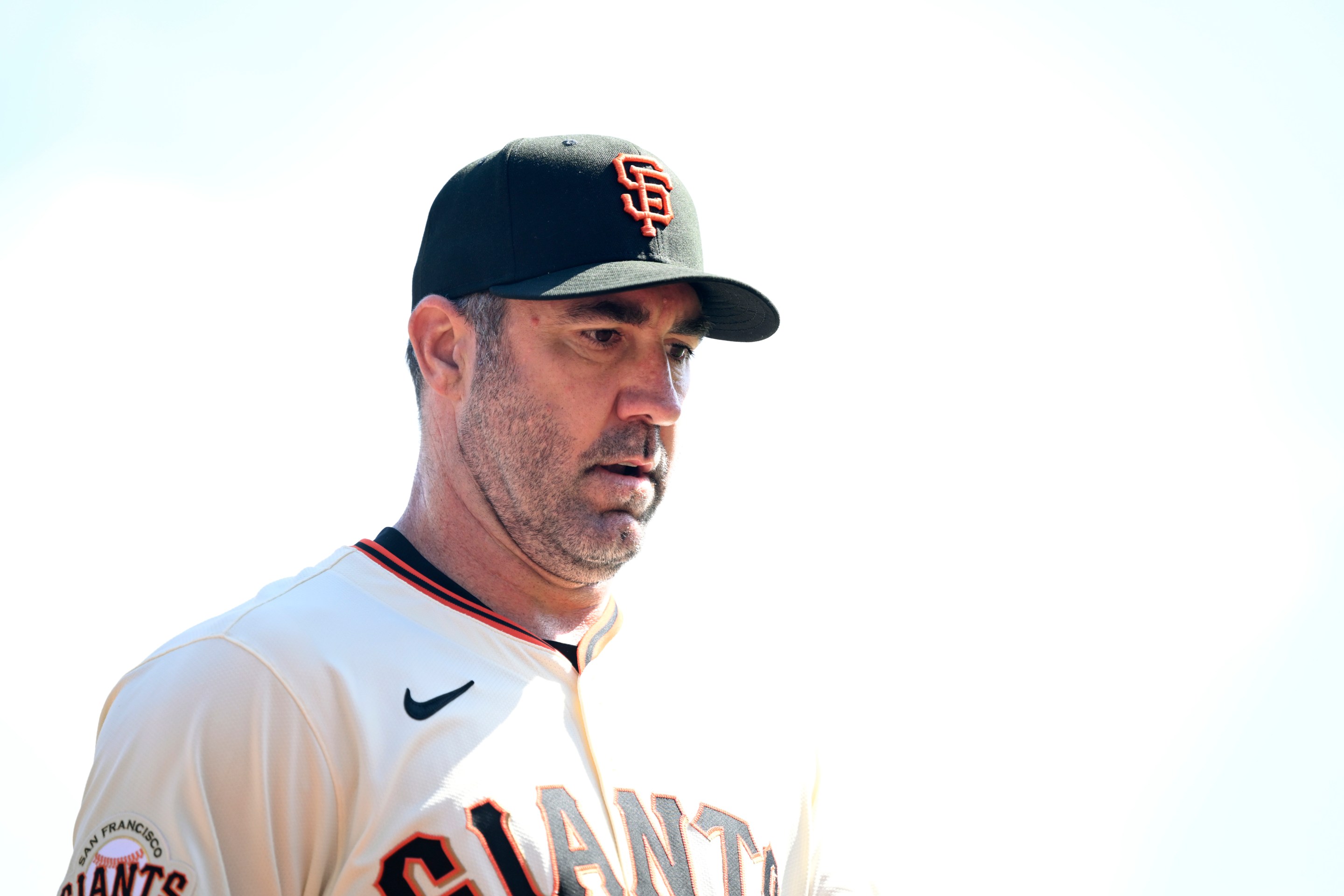Elvis Presley is the rare artist whose life and work can make the standard music biopic formula feel energized, or at least not pointless, because Elvis was barely a musician. That's plainly not true, in the literal sense: His life was built entirely around singing to hysterical teenagers in the '50s and then dwindling crowds of moviegoers in the '60s and then nostalgic loyalists in the '70s. But in no rock star's career does the music matter less. He was a visual artist more than he ever was an audio artist. While there are transcendent musical moments within the mountain of crap that he released—the fakeout ending of "Suspicious Minds," the despair of the word "lonely" in "Heartbreak Hotel," the earnestness of his vocals on "If I Can Dream"—Elvis was an artist who needed to be seen. He was a great singer who made some interesting stylistic experiments, but had it not been for the aspects of his performance that couldn't be conveyed on vinyl alone—his hips, his butch androgyny, and most crucially his whiteness—his career wouldn't have been worth making a film out of 45 years after it ended. Without the iconography, he's a chapter in a book about Sun Records. With it, he's a headliner even in death.
Elvis, the first Baz Luhrmann movie to hit theaters since The Great Gatsby nearly a decade ago, has arrived to its fair share of ridicule. It appears on its way to modest commercial success, and it's earned a respectable critical reception overall. But it also feels destined to be a meme movie, or a "it's so fun because it's bad" movie, with its perception shaped by out-of-context images like Austin Butler's sweaty, unwell appearance as 1977 Elvis and David Ehrlich's scorched-earth review out of Cannes for Indiewire:
“It doesn’t matter if you do 10 stupid things so long as you do one smart one,” Colonel Tom Parker advises us near the start of Baz Luhrmann’s utterly deranged musical biopic about the King of Rock & Roll, but even a ratio that forgiving would still leave “Elvis” roughly 370 “smart ones” short. If only this 159-minute eyesore — a sadistically monotonous super-montage in which a weird Flemish guy manipulates some naïve young greaser over and over and over again until they both get sad and die — were gracious enough to be as short in any other respect.
I don't feel comfortable saying that Elvis is a good movie. Every ridiculous thing you've heard about it is true, and it's a hard thing to enjoy unless you are willing to turn off your brain and stop thinking about it by traditional film rubrics. It covers far too much ground for even its bloated runtime, struggling to ever get the audience's feet planted with a scene that lasts more than 20 seconds. It fails to depict a single character trait of its central narrator, Colonel Tom Parker, other than "he's greedy," and in Tom Hanks's performance there's a desperate effort that's completely antithetical to the actor's strengths. And after doing an admirable job depicting the musical context and influence of 1950s Memphis, it completely loses track of Elvis's place in American culture in his later years or today. Despite all that, I'm very glad Elvis exists, because it gives Elvis a visual medium worthy of his presence, something that never quite existed even while he was alive.
Watching the real Elvis, with the means available to us today, is an exercise in unfulfilled expectations. The mythic stories about this man's power over hordes of screaming fans continue to this day, but the tools to document and preserve that power were woefully insufficient. On black-and-white televisions, with their cramped aspect ratio and single-camera setup, Elvis is charming but also a little awkward and goofy, seeming more dominated by the girls screaming than they are by him. His movies almost uniformly make him seem corny and hackneyed—a cute face stuck in increasingly cheap-looking exotic locales and forced to croon forgettable numbers over and over. When he returned to live concerts his performances became a kind of seance—attempts to invoke the ghost of the old Elvis that became less and less effective as his health deteriorated. Even his 1968 "Comeback Special," hailed by many as the best moment of Elvis's career, can't escape a kind of stilted staginess that seemed to occur any time a camera had to distance the performer from his audience. You never, ever feel like "you are there," let alone under Elvis's spell.
Lester Bangs, upon Elvis's death in 1977, wrote about the live Elvis experience: "He was the only male performer I have ever seen to whom I responded sexually; it wasn’t real arousal, rather an erection of the heart, when I looked at him I went mad with desire and envy and worship and self-projection. I mean, Mick Jagger, whom I saw as far back as 1964 and twice in ’65, never even came close."
Viewing Elvis through a screen, have you ever felt that? I can't say I have. When I watch him, I see something closer to an idiosyncratic relic whose power has been worn down and wrung out by countless parodies and imitations. I feel a general appreciation for his beauty and talent and place in the lore of popular music, but I end up studying him like an artifact in a museum. He is history. I know, academically, that millions of people saw him as something more, as a sex god who commanded a room like no other and brought piercing, shrieking noises out of everyone who laid eyes on him, all with the smallest of twitches. But it requires an impossible sort of time travel to cast aside all the distracting trappings of the era and fall in thrall to his core magnetism.
Austin Butler, thankfully, is the closest thing we have to a time traveler. Given the absurd task of playing one of the most recognized and charismatic men of all time, the former budget Zac Efron explodes in an unexpectedly powerful burst of sexuality tinged with oedipal sensitivity. In the dramatic sections, Butler is at times swallowed by the overwhelming dual presences of Hanks's excessive quirks and his director's maximalist visual style, which at times made me wish for extra screens to my left and right just to fit it all. He's scarcely given time to even sketch out his character's desires and anxieties at any point in his life before the script whisks him to the next benchmark in Elvis's career. But: Holy shit. In every one of the movie's handful of performance scenes, Butler is a revelatory bolt, searing away the disconnect that frustrates any attempt at absorbing Elvis in 2022 and leaving in its place a timeless and awe-inspiring rock-star energy. The accompanying horny screams feel earned, and inevitable.
With crystal-clear cameras, full, saturated color, beefed-up audio, a giant screen, an endless and relentless arsenal of cuts and close-ups, and every other trick in the Baz Luhrmann playbook, Elvis shows its subject as he's always demanded to be seen. Say what you will about Luhrmann's overstuffed approach, but he's the only man yet whose cameras have really been able to keep pace with the chaotic tornado that was the Elvis legend at his peak. The movie is an unreal, fantastical portrayal of an unreal, fantastical man. And even though this scene of the singer getting arrested after nearly causing a riot with his suggestive writhing is pretty much a complete fabrication, it provokes Bangs's "desire and envy and worship and self-projection" more effectively than any true anecdote and actual clip has or could. The camera, an extension of our own eyes, worships Elvis's body through every conceivable angle, movement, and filter.
I really have not stopped thinking about this version of Elvis since I saw the movie. Watching these clips back, outside the anonymous escapism of the theater, there is a kind of goofy embarrassment to how easily the artifice can be picked apart. But that's why this works as a movie. Like Elvis the performer in the 1950s, it pulls you out of your self-consciousness and into a state of mind that you're both mildly ashamed of and completely enthralled by, disorienting you with a perfection that dances just out of reach and leaving you at its mercy, with the only way to soothe your hungover desire to experience that sensation again available through consumerism. I already bought a pink button-up shirt like one that Butler wears in the film. The movie is a carny act as old as money, just like the selling and merchandising of Elvis himself, but at the center of it, in both cases, is a star that makes you believe in magic for a few minutes at a time.
For no other artist is this kind of cinematic door-opening comparable, because for almost every other musician with a biopic, their best and most lasting contribution is the music itself, and every other aspect of the film feels like window-dressing meant to repackage and resell the original product. You will come far closer to understanding the talent and impact of Queen by listening to Sheer Heart Attack and A Night At The Opera than you will sitting through the surface-level backstory of Bohemian Rhapsody. You will have a much more intimate experience with the work of Brian Wilson by accessing and deciding the meaning of Pet Sounds and Smile for yourself than through watching Love & Mercy. The motivation and emotion behind Straight Outta Compton, the album, is many times more immediately and keenly felt than that of the film.
But Elvis, the movie, is different, because Elvis the icon was different. You can't understand Elvis until you want to either be him or fuck him, or both. He was so much more than just what he put to tape, and Luhrmann has the mindset and the resources, finally, to capture a fine reanimation of it. Even long before this movie, though, a large part of Elvis's appeal was that the idol took the place of the reality. This is the story of a legend, not a man.






